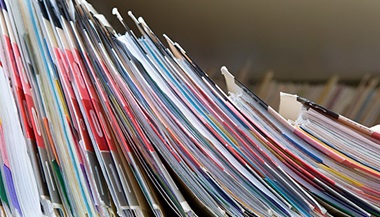Medication Management and Safety Tips
Managing medications can be complicated, particularly if you are taking several prescription drugs that treat different conditions. Over 20% of U.S. adults age 40 and older take five or more prescription drugs. The best approach: “When you’re using several medications, be proactive,” says Jessica Merrey, Pharm.D., lead ambulatory clinical pharmacy specialist at The Johns Hopkins Hospital and certified geriatric pharmacist. “Taking medications as directed by your doctor, getting refills on time, and staying alert to side effects and interactions all help keep you healthy.”
The following strategies can make managing multiple medications easier — and safer:
Follow medication schedules and doses
- Understand your medication routine. Confirm the exact dose and timing of each medication with your pharmacist. Follow the schedule exactly, and take the exact dose prescribed. If needed, remember which medications need to be taken on an empty stomach or with food.
- Double check information with your pharmacist. Verify your information with your pharmacist each time you fill or start a new prescription to keep you on track.
Here are some tips to stick to your medication schedule:
- Write down the medication schedule and track changes. Place your daily medication routine on a calendar or chart. Printable medication schedule templates are available online to make it easier for you. Update your schedule each time your medicine changes.
- Keep your schedule in an obvious place. Try putting the schedule in a place you see often, like the door of your refrigerator or of a kitchen cabinet.
- Make taking your medications part of your daily routine. “Try setting a timer on your phone, watch or alarm clock,” suggests Merrey. “You might always take them after you brush your teeth or before eating breakfast.”
Consider a pill organizer
Use a weekly or daily pill organizer — especially when taking several medicines — to help make sure you get the right dose at the right time. “A pillbox with compartments for each day of the week — and for morning, noon and night if you take medications several times a day — lets you know at a glance whether you’ve taken your medicines yet,” Merrey says. Ask at your pharmacy what pill organizers are available. Smartphone or computer-based apps may also help.
Medications that aren’t currently in your pillbox should be kept in their original containers. The labels include important information such as the medicine name, dosage, clinician’s name and the expiration date. Instructions about storage and information on some major side effects are also on the label.
Make sure all clinicians know what medications you take
If you go to different clinicians for different conditions, it’s extremely important to tell each of them about all of the medications you are taking. It may help to carry a list with you at all times.
- Use a medicine wallet card. Ask your pharmacist if a medicine wallet card is available, or make your own. The card will help you keep an up-to-date list of your medicines with you.
- Make sure your pharmacy has a record of all the medicines you take. Use your medication list to let your pharmacist know about all of your prescriptions and over-the-counter medicines. “Don’t assume all of your physicians and clinicians know about all of your medications,” Merrey says. “A list is essential. It can also help your doctor look for the sources of any side effects or interactions you may be having.”
- Try filling your prescriptions at one pharmacy. This makes getting prescription refills simpler and helps your pharmacist protect you from drug interactions. “Using one pharmacy keeps your medication records in one place, so the pharmacist can evaluate your risk and work with your doctor to avoid potential problems,” says Merrey.
- Tell your physicians, clinicians and your pharmacist about your allergies. They can keep that important information in your records. Before taking a new prescription, be sure to confirm that it will not interact with your allergies.
- Never stop taking a medicine on your own. Always get your physician or clinician’s guidance. Some medicines must be stopped gradually to avoid complications. If the medicine is making you feel sick or causing side effects that are difficult to tolerate, ask about adjusting the dose or changing the medicine.
- Review your medications annually. Once each year, toss everything you take (prescriptions, over-the-counter remedies and supplements) into a bag and take it to your annual checkup for a review. “With age, the body absorbs and breaks down medications differently,” Merrey says. “Your doctor may change the dose of something you’ve used for a long time.”
Manage medications safely
Where you store medications and how you take them can have a big impact on their effectiveness and your safety. Ask your physicians and clinicians about possible side effects or medication interactions that you should be aware of. Confirm the best place to store your medicines in your home. Most importantly, know who to call if you have a bad reaction or takes a prescription differently than prescribed.
- Store medicines in a proper location. Medication should always be stored safely in a dry, cool place. For this reason, avoid keeping prescriptions in the bathroom.
- Keep medicine in a childproof place. If children are around, keep medicine containers out of reach, especially those without childproof caps. Some medicines have bright colors and shapes that children can mistake as candy.
- Take medicine in a safe environment. Never take medicine in the dark or when you are tired or distracted. You might take the wrong medicine or too much. Ask for help, if needed, to find and take the correct medicine.
- Take only your own prescriptions. Never take medicines prescribed for someone else.
- Ask your pharmacist before drinking alcohol. Some medications interact poorly with alcohol. Ask your physician or pharmacist if it is safe to drink while taking any prescription or over-the-counter medicine.
Managing Expired or Discontinued Medications
If your physician tells you to discontinue a medicine, dispose of it immediately. Also dispose of medications that are expired. Do not keep them for future needs. You could have side effects or a medicine interaction if you accidentally take that medication.
Proper Disposal of Expired or Discontinued Medication
Some medicines are harmful and could be fatal if accidentally taken by children or anyone else. It is important to always dispose of medications properly. Inquire at your pharmacy about medicine take back programs in your area. If one is not available, follow disposal instructions on the medicine label or the patient information that accompanies the medicine.
If no instructions are given, crush and mix medicines with coffee grounds, cat litter or food scraps, then seal them in a bag or a container (such as a jar or a margarine tub) and discard them in the regular trash.
Ask your pharmacist about affordable alternatives
If you’re having difficulty paying for medications, don’t hesitate to ask about lower cost options such as generic drugs. “Taking multiple medications doesn’t have to be expensive,” notes Merrey. “If you’re surprised by the price of a drug when you pick it up at the pharmacy, don’t walk away. Ask the pharmacist to talk with your doctor about other options or to guide you to prescription-drug assistance programs.”
Called to Care® | A Program For Family Caregivers
We recognized the importance of family caregivers, as well as the physical and emotional stresses that can accompany caregiving. Hear how Johns Hopkins Bayview prepares and supports those caring for loved ones with health-related needs or limitations.
Get Your Medications from a Johns Hopkins Medicine Pharmacy








